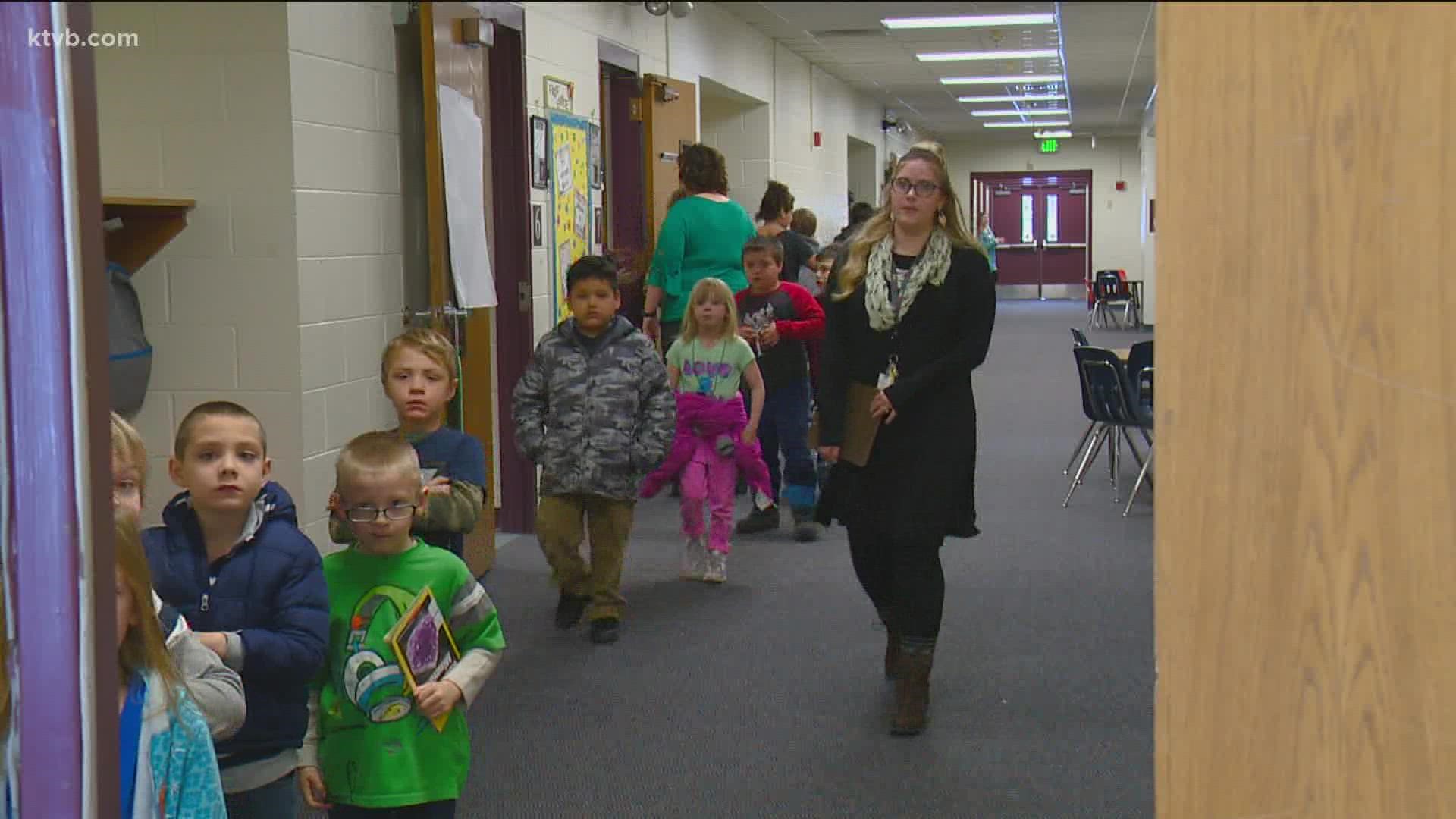BOISE, Idaho — For the first time, the Idaho State Board of Education sent out a survey to Idaho’s 115 school districts in recent weeks to get a sense of just how short-staffed they are.
78 of the 115 districts have responded. Combined, the 78 districts are currently unable to fill 894 teaching openings.
“I haven't pulled information from our charter schools yet but what I am hearing so far is that they are experiencing similar difficulties,” State Board of Education Chief Planning and Policy Officer, Tracie Bent said.
Bent said Idaho has not had to conduct a survey like this before, but decided to after hearing districts were struggling to staff up.
"Anecdotally, what I am hearing them saying is that this is a much higher rate of open positions than they have seen in the past,” Bent said. "The pool of applicants, in many cases, they receive none or they are not people who are certified on a standard certificate."
According to Mike Journee, Director of Communications with the Idaho Education Association, the reason behind teachers leaving is multifaceted.
"Given the kinds of salaries that we see in other countries, even other states nearby, paying teachers and after the long road of COVID-19,” Journee said. “It's a very taxing thing for educators."
Journee said that right now, more than half of Idaho educators are considering leaving the industry.
“We have a long way to go, especially here in Idaho given the current situation and so it's understandable, but it's also kind of scary,” Journee said. "The best indicator for strong education outcome for any particular student is having a veteran, well-respected teacher in the classroom."
According to Bent, veteran educators are becoming less common in Idaho.
“We have the option for a school district to do an alternative route for certification. These are most commonly used for people who have content knowledge, but haven't gone through the formal training,” Bent said. “So, they can have a three-year certificate where they can go into the classroom and receive mentoring and additional training."
Bent said a large majority of new hires are coming from alternate routes, which means in three years, some may move on.
"The other risk is just putting people in the classroom, because we need bodies that aren't prepared to teach our students,” Bent said. “That's what we have to balance when we are looking at solutions, is what's the right solution for still maintaining the quality teachers that we have and trying to entice people that can be quality teachers.”
Join 'The 208' conversation:
- Text us at (208) 321-5614
- E-mail us at the208@ktvb.com
- Join our The 208 Facebook group: https://www.facebook.com/groups/the208KTVB/
- Follow us on Twitter: @the208KTVB or tweet #the208 and #SoIdaho
- Follow us on Instagram: @the208KTVB
- Bookmark our landing page: /the-208
- Still reading this list? We're on YouTube, too:

